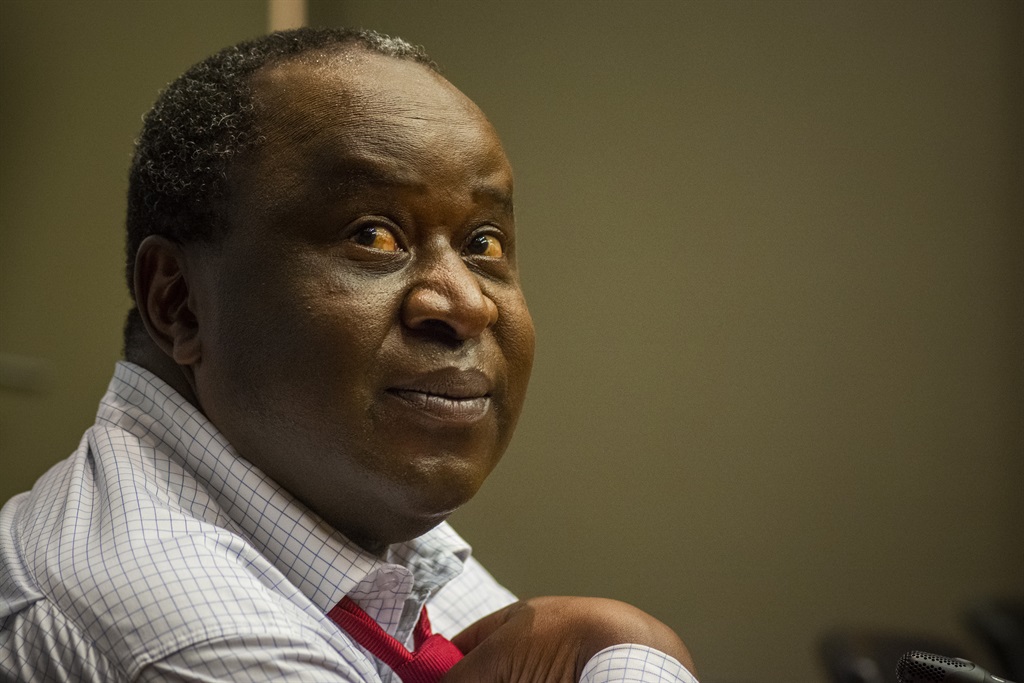
Comrade BaTito, it is important for society to comprehend your argument on language more broadly than your Twitter sentence.
To say, you do not agree with Afrikaans being dropped by the University of Pretoria, because it will haunt us in the next 30 years is not enough. Surely you can do better than this.
It is crucial for you to explain your Twitter sentence around Afrikaans to grasp your comprehension or lack therefore regarding language question in relation to transformation in higher education.
I publicly, and in my personal capacity, DISAGREE, with the phasing out of Afrikaans as one of the mediums of teaching at the University of Pretoria. As a country, you are shooting yourselves down. You will regret it in 30 years’ time. pic.twitter.com/qNe43ErSQz
— Tito Mboweni (@tito_mboweni) January 24, 2019
We have been warned of people who write one line sentence of nothing, and expect applause from the public on the basis that they are public figures and whatever they say, without scrutiny, denotes excellence and sound reasoning. Such acts impoverish public discourse and rob South Africa of honest, frank and robust discussion; it should have on many issues that ravages society.
So comrade BaTito, while you gather your thoughts preparing if you like, exposing to the nation the limitation of the decision by the university and how we will regret it in 2049 (30 years) later. I want to acme few issues for your sake, partly to remind you, but also bring you into reality, which I want to, believe, (until you clarify), you are missing.
The language debate has been going on in South Africa since the dawn of our democracy (1994), resulting into policies being written, and some changed to respond to this necessary but complex question given the nature of history of South Africa. You know why it has been characterised as “complex’’? For of its ability to either facilitate and or limit democratisation project, if handled clumsily. In this instance, I am reminded of one of the revered scholar, the late comrade Neville Alexander (1989). He argued that the language debate in South Africa has a problematic history, that colonisers and apartheid regime deliberately suppressed indigenous people’s languages, in order for theirs to find dominance and thrive society, as it is in terms of economy and communication, their language(s) is hegemonic. Alexander reminded us that, like the question of colour (race), language question would continue to haunt us, for the next sphere of our lives, if ignored.
In this regard, for me the University of Pretoria has done an exceptional job to internally and widely measure and verify the appetite of Afrikaans as medium of instruction between the period 1992-2015. Its findings were that 50% were initially still interested, and this dropped to 18% in 2016, prompting the change.
The university has to be commended for not avoiding this big elephant in the room in making this decision. I guess they felt the pressure and burden of being identified as apartheid institution in democratic South Africa.
More narrowly, appreciation must be given to Professor Tawana Kupe, the brand-new vice-chancellor, for implementing so correctly the decision taken by the council long before his arrival.
When individuals or groups realise their wishes through language or conversely, when their intention is to impose their narrowly agenda on others, it then disempowers those imposed on them.
A critical writer on this topic, Ngugi wa Thiong’o, one of the original sources in the struggle for decolonisation, described the colonial language as one of the tools colonialism used to neutralise the colonised.
Consistent with this observation, the council of the University of Pretoria opted to make and build an inclusive institution, which has bigger responsibility in society, like any other institution, to facilitate social cohesion and foster unity and also open a mother tongue practice to those students who wanted assistance in that regard.
This should remind you of Aimer Cesaire, comrade BaTito, who posited that learning in one’s mother tongue promotes a deep conceptual understanding of a subject, encouraging promotion of both mother tongue and global spoken language such as English.
Our Constitution affords everyone the right to receive education in the official language or language of their choice in the public educational institutions where that education is reasonably practicable.
For me, this is an open and well-canvassed decision by the university.
How do you then, comrade BaTito, envision that so well-canvassed decision will haunt society in 30 years? On what basis are you making this wild claim?
In many instances Afrikaans, to many South Africans, represent exclusiveness. Its recognition still reinforces power and dominance one race (Afrikaners) over the other (blacks) and this had to be addressed. Lastly, your views, unlike mine, carry weight in society.
• Tolika Sibiya is a national executive committee member of South African Youth Council, an umbrella body of all youth formations, irrespective of political, ideological, religious inclination, encompassing community based organisations and non-governmental organisations writes in his activist (personal) capacity.




 Publications
Publications
 Partners
Partners








